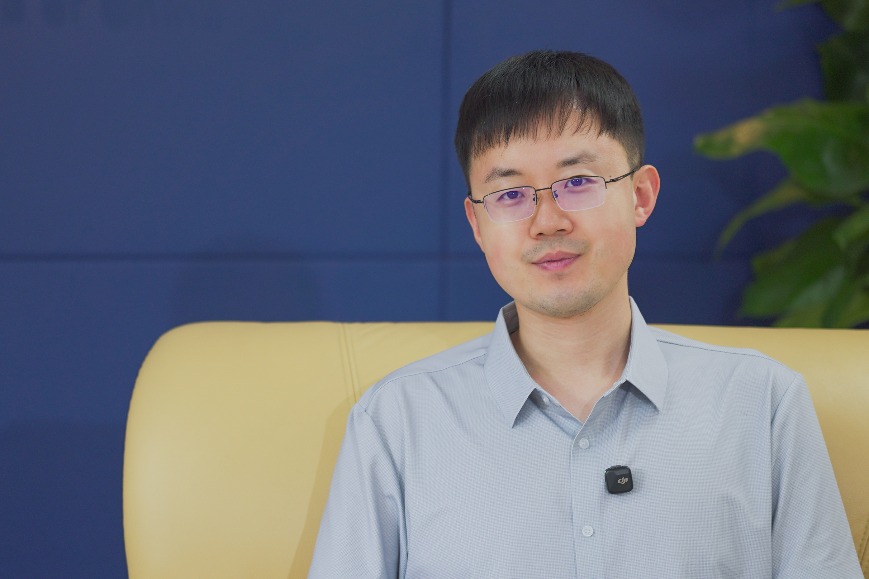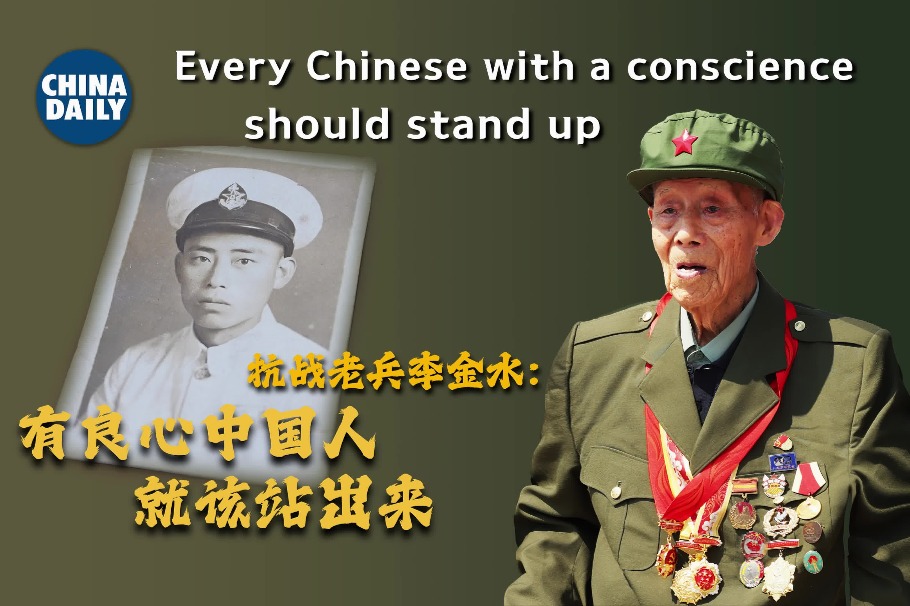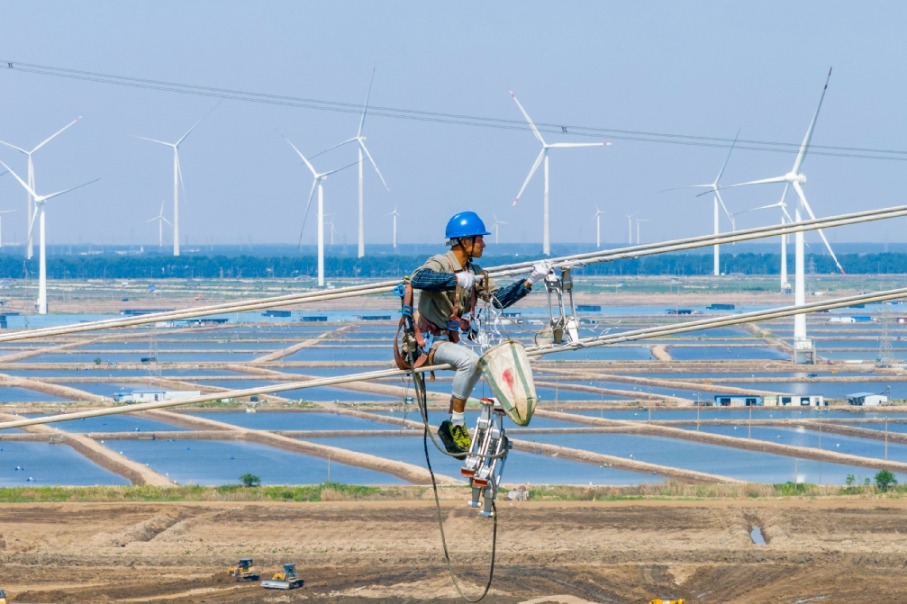Cross-Strait bonds too strong to break apart
Taiwan people continue to arrive on mainland, defying DPP's restrictions

Editor's note: The Taiwan question is a key focus for China and the international community. China Daily is publishing a series of reports to track hot Taiwan-related topics and address disinformation from the Democratic Progressive Party administration.
A deep emotional bond rooted in shared heritage continues to draw people from Taiwan to the Chinese mainland for exchanges and opportunities, despite obstacles imposed by the island's Democratic Progressive Party authorities seeking to sever cross-Strait ties.
Ma Ying-jeou, former chairman of the Chinese Kuomintang party, is leading a group of students on a mainland visit from June 14 to 27. It is his fourth visit aimed at promoting youth exchanges and easing tensions triggered by the DPP's "pro-independence" stance.
While attending a commemorative ceremony in Tianshui, Gansu province, on Saturday to honor Fu Xi, a legendary ancestor of the Chinese nation, Ma said most people in Taiwan retain a strong belief in Chinese culture and identity.
"Even though Taiwan was colonized by Japan for 50 years, we still insist on being descendants of Yan and Huang and maintain the subjectivity and dignity of the Chinese nation," Ma told reporters.
Yan Di and Huang Di, or the Yan Emperor and the Yellow Emperor, are legendary rulers who are revered as the common ancestors of the Chinese people. Many Chinese people proudly refer to themselves as "descendants of Yan and Huang".
The group will also visit Dunhuang in Gansu and is expected to attend a cross-Strait cultural seminar focused on shared heritage. Another part of the trip will take them along the Hexi Corridor and the ancient Silk Road.
Before arriving in Gansu, the delegation visited Fujian province, where they participated in the 17th Straits Forum in Xiamen on June 15. The annual forum is the largest cross-Strait people-to-people exchange platform, attracting participants from various sectors.
"Whether in language, customs, food or human sentiment, we can feel a lot of resonance, which helps us understand that the connection between the two sides is inseparable," Ma said during the forum's main conference.
Ma noted that the ancestors of many people in Taiwan came from Fujian, and said the connection is not only a historical imprint but also a valuable asset for both sides to protect and develop together.
"No political force can suppress or prevent sincere exchanges between people on both sides of the Strait, let alone block the natural feelings of the Chinese people on both sides who share the same roots and origins," he said.
Cultural bridge
The popularity of mainland films and other artwork rooted in traditional Chinese culture, such as Ne Zha 2 and the video game Black Myth: Wukong, has sparked interest among young people attending the forum.
In April, the Minnan dialect — a dialect used in southern Fujian as well as in Taiwan — version of the animated film Chang'an was released in Taiwan, igniting a renewed enthusiasm for poetry. The film revives iconic poets from the Tang Dynasty (618-907), including Li Bai and Gao Shi.
Wang Hsi-hwa, a Taiwan actor who voiced Gao Shi in Minnan dialect, said young audiences in Taiwan have embraced the film. "I hope to dub Ne Zha in the Minnan dialect in the future and bring it to audiences in Taiwan," he said.
Chiang Kuo-ming, the first Taiwan media professional to receive a television production license in Fujian last year, is now co-producing an animated web drama with mainland counterparts about Chinese cultural relics lost overseas.
"One of the main characters is inspired by the figure of Nezha, popular in both southern Fujian and Taiwan folklore," Chiang said. "Through this, I hope to show that both sides of the Strait are one family."
Xu Xiaoquan, a researcher at the Chinese Academy of Social Sciences' Institute of Taiwan Studies, said culture is the most natural and enduring connection in cross-Strait relations.
He said the DPP authorities have sought to erode historical and cultural ties, but collaborative efforts to promote Chinese culture can help awaken shared historical memory among Taiwan compatriots.
Restrictions fail
Wang Hailiang, director of the Shanghai Institute for East Asian Studies, said the DPP has adopted obstructive measures to restrict Taiwan residents' participation in the forum out of fear of closer cross-Strait exchanges.
Nevertheless, more than 7,000 individuals from Taiwan traveled to attend this year's forum in Fujian, and Ma personally led the student delegation, Wang said.
"It is evident that no one is intimidated by the threats of the DPP. In fact, it is the DPP themselves who fear cross-Strait exchanges," he said.
Wang added that many in Taiwan have strong sentiments and expectations for the forum, and their support helped ensure its success.
Lee Tung-hsien, executive chairman of the China Reunification Alumni Association, has participated in the forum for the past decade. He has introduced many young people from Taiwan to the mainland, with many later choosing to study or work there.
"Many have found their direction and opportunities here," said Lee, who is also a Taekwondo athlete from Taiwan's Tainan who established a Taekwondo center in Nantong, Jiangsu province, in recent years.
In January, Lee's household registration in Taiwan was canceled by the DPP authorities after he acquired a mainland resident ID card and displayed the five-star red flag at the 2023 Asia-Pacific Masters Games, where he won a bronze medal. His act was praised by netizens.
The DPP has been intensifying efforts to crack down on cross-Strait exchanges. In April, Chang Li-chi, a Taiwan teacher at Huaqiao University in Fujian, also had his Taiwan identity revoked after obtaining a resident permit on the mainland.
Lee said such actions are generating growing discontent among the public in Taiwan. "The DPP is unfairly targeting young people engaged in cross-Strait exchanges and using political tactics to smear ordinary people," he said.
Citing recent polls in Taiwan showing that only 7 percent of respondents oppose cross-Strait exchanges, Lee urged the DPP to respect public opinion and refrain from actions that hurt people's interests.

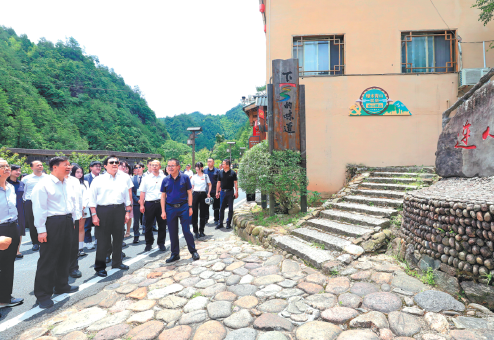
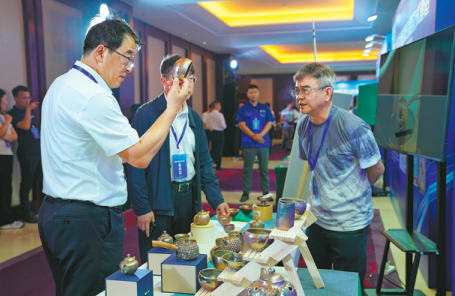

Today's Top News
- Nepal's hydropower a climate change solution
- UN Charter still guiding compass of humankind
- Leaders pledge to strengthen Sino-Senegalese relations
- China, Ecuador to support each other's core interests
- Details on trade talks confirmed
- Bolder steps likely to boost demand
















